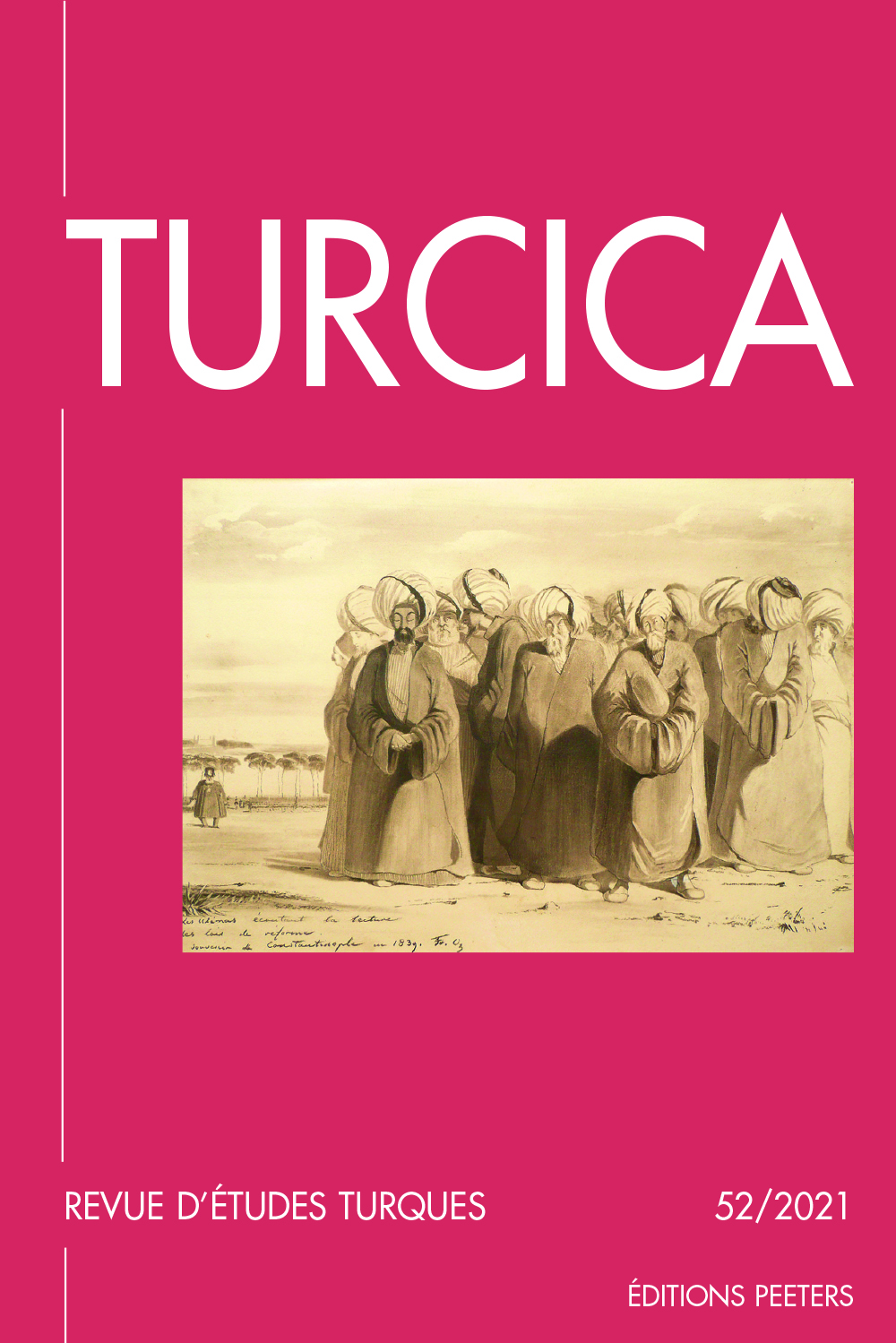 previous article in this issue previous article in this issue | next article in this issue  |

Preview first page |
Document Details : Title: Barberousse, Gui Fleury et Jean de La Forest, acteurs des relations franco-ottomanes à Tunis en 1534-1535 Subtitle: À propos d'un rapprt inédit de Hayr ed-Dîn Barberousse Author(s): VATIN, Nicolas Journal: Turcica Volume: 55 Date: 2024 Pages: 367-393 DOI: 10.2143/TURC.55.0.3293742 Abstract : Le présent article est consacré à la publication, la traduction et l’analyse d’un document conservé aux archives du Palais de Topkapı sous la cote E.0746. Il s’agit d’un rapport rédigé par Hayr ed-Dîn Barberousse à Tunis dans la seconde quinzaine d’avril 1535 et expédié à la Porte par le même bateau qui portait l’ambassadeur de France Jean de La Forest. Il mentionne un autre ambassadeur de François Ier auprès de Soliman jusqu’ici passé inaperçu, qu’on peut identifier à Gui Fleury, valet de chambre du Roi. Au printemps 1534 Fleury, après avoir eu des discussions avec Hayr ed-Dîn à Modon, se rendit au camp de Soliman alors en partance pour la campagne des Deux Iraks, puis gagna Tunis d’où il accompagna l’ambassade ottomane qui se rendit auprès de la cour de France à Chatellerault en novembre. Le bateau algérois qui l’avait mené à Marseille escorta Jean de La Forest quand, le 11 avril 1535, il gagna Tunis et de là Istanbul. On comprend que le très discret Guy Fleury avait préalablement négocié les bases d’un accord que La Forest était chargé de conclure. Les propositions françaises sont résumées par Hayr ed-Dîn: conclusion d’une trêve de trois ans permettant une libre circulation des personnes, notamment des marchands, et coopération navale au profit du frère du roi de Sicile (en réalité un certain César Imperiale, protégé des Français). Le document n-ous éclaire sur le rôle diplomatique de Hayr ed-Dîn, beglerbegi des îles, mais aussi roi d’Alger et, en 1534-35, de Tunis. Les grandes lignes de négociation avaient été définies avant le départ du sultan et du grand vizir pour la campagne des deux Iraks. En tant que maître d’Alger et commandant de la flotte à proximité de l’Occident, c’était le rôle de Hayr ed-Dîn de se renseigner et de négocier. Son rapport est l’occasion de se prononcer sur l’utilité de l’alliance avec les Français: selon lui, ils travaillaient assurément pour leur compte, mais on devait pouvoir leur faire confiance. This paper offers the publication, translation, and analysis of a document kept in Topkapı Palace’s archives as E.7046. It is a report written by Barbarossa in Tunis during the second half of April 1535, which was sent to the Porte on the same boat that carried the ambassador of France Jean de La Forest. It mentions another ambassador from Francis I to Suleiman, till now unknown, whom we can identify as Gui Fleury, valet de chambre of the King. In the spring of 1534, Fleury, after some conversations with Hayr ed-Dîn in Modon, went to the camp of the Sultan (then on his depart for the Two Iraqs campaign), and then to Tunis, from where he accompanied the Ottoman embassy which visited the French court at Chatellerault in November. The boat that had brought him from Algiers to Marseilles escorted Jean de La Forest when, on April 11th 1535, he left for Tunis, and from there for Istanbul. We understand that the very discreet Fleury had beforehand negotiated the bases of an agreement which La Forest was to ensure. The French proposals are summarized by Hayr ed-Dîn: a three years truce allowing the free circulation of men, notably merchants, and a naval co-operation for the sake of the King of Sicily’s brother (actually a certain Cesare Imperiale, a protégé of the French). The document sheds light on the diplomatic role of Hayr ed-Dîn, who was beglerbegi of the islands, but also sovereign of Algiers and (in 1534-35) of Tunis. The outlines of the negotiation had been defined before the Sultan’s and the Grand Vizier’s departure for the Two Iraqs campaign. As master of Algiers and commander of the fleet close to the Western lands, it was Hayr ed-Dîn’s duty to collect information and negotiate. The present report gave him the opportunity to give his opinion about the French alliance: although they obviously worked for their own interest, it was possible to trust them. |
|


